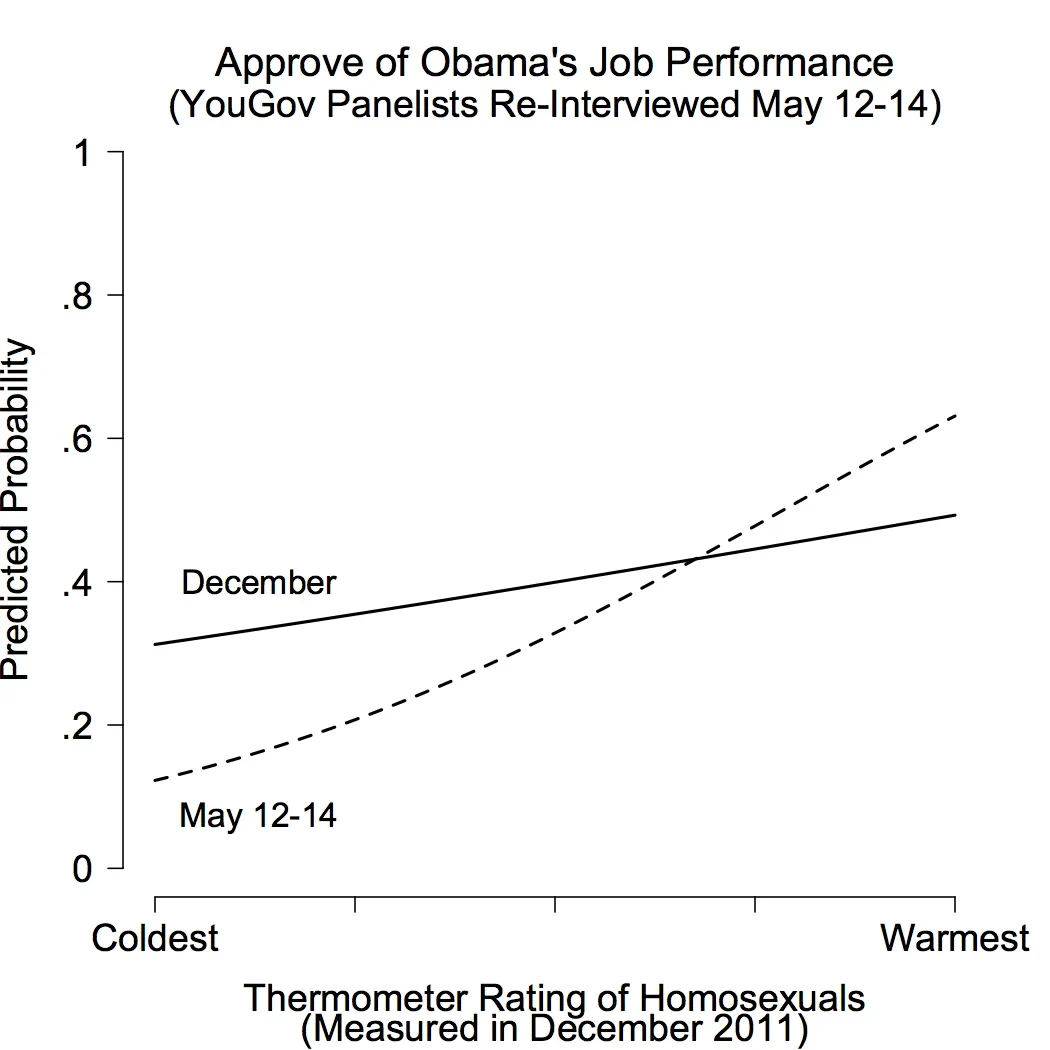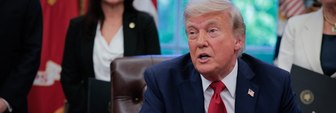A long line of social science research suggests that the more attention campaigns and the media pay to a particular aspect of political life the more citizens will rely on that consideration in their political evaluations (see: 1, 2, 3, 4, 5; though also see: here). In other words, an influx of attention to a particular issue can prime or activate related attitudes in mass political decision making.
We might expect, then, that attitudes about homosexuality would become an increasingly important ingredient of presidential approval in the wake of Obama’s much publicized announcement in support of same-sex marriage. After all, this story dominated the national headlines last week.
Fortunately, some unique survey data collected by YouGov earlier this week allows us to test that expectation. The poll re-contacted a nationally representative sample of 1000 individuals who were previously interviewed in December 2011. Since the prior 2011 survey asked how warmly respondents felt towards homosexuals on a 0-100 thermometer scale, we can effectively determine whether feelings towards gays and lesbians became a more important determinant of presidential approval after Barack Obama’s statement in support of same-sex marriage than they were beforehand.
The figure below shows that attitudes towards homosexuals are, in fact, a much stronger predictor of presidential approval now than they were back in December. After controlling for party identification, ideological self-placement, and racial conservatism, the display shows that moving from the coldest to the warmest assessment of gays and lesbians increased Obama’s approval rating by only 18 percentage points back in late 2011. That same change in attitudes towards homosexuals, however, was associated with a 50 point increase in support for Obama among the exact same respondents who were re-interviewed earlier this week.

(Note: Predicted probabilities calculated by setting partisanship, ideological self-placement, and racial resentment to their sample means)
It is important to note that the positive and negative effects of attitudes towards homosexuals roughly cancel out in the display, leaving Obama’s approval rating virtually unchanged amongst these respondents who were interviewed in both December 2011 and May 2012. Moreover, attitudes towards homosexuals may have been further primed by the fact that a series of questions about both gay marriage and Obama’s statement in support of it were asked prior to presidential approval in the May 12-14 survey (see questionnaire here). Nevertheless, these results strongly suggest that President Obama’s endorsement of same-sex marriage made attitudes about homosexuals a more salient consideration in how the public evaluates him.









